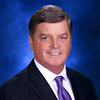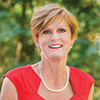If there’s one thing you can count on in the real estate market, it’s change—and if you want your firm to succeed long-term, it had better be able to change right along with it.
No one knows this better than the panelists who took part in RISMedia’s Power Broker Roundtable at the recent NAR Broker Summit. During the session “Above the Plateau: Strategies for Remaining Vital and Profitable,” leading brokers shared how they’re adapting their companies to meet the needs of fluctuating market conditions, shifting regulations, and a constantly evolving consumer.
Held at the Fairmont Grand Del Mar in San Diego, the panel was moderated by RISMedia President and CEO John Featherston and featured the following brokers:
 Robert Bailey: Broker, Bailey Properties; Liaison for Large Residential Firms Relations, National Association of REALTORS®
Robert Bailey: Broker, Bailey Properties; Liaison for Large Residential Firms Relations, National Association of REALTORS®
 Gretchen Pearson: President, Berkshire Hathaway HomeServices Drysdale Properties
Gretchen Pearson: President, Berkshire Hathaway HomeServices Drysdale Properties
 David Romero: President & CEO, CENTURY 21 Award
David Romero: President & CEO, CENTURY 21 Award
 Michael Golden: Co-founder, @properties
Michael Golden: Co-founder, @properties
Keeping a Pulse on Market Conditions
Just as all real estate is local, so are many of the challenges facing today’s brokers. To consistently reach new levels of success, brokers must have a realistic and accurate read on their respective market conditions.
For Bailey, who runs a large regional firm in Santa Cruz, Calif., housing affordability tops the list. “Homeownership rates dropped nationally to 63 percent. Now in California, we’re sitting right below 54 percent,” shared Bailey. “One economist predicted that we would be a tenant state by 2020. That’s a challenge.”
Pearson, however, whose firm has more than 900 agents in 35 offices throughout California and Nevada, is bullish on market conditions. “Capital gains policy changes are going to loosen up inventory in California,” she said. “We need to stay in tune with these changes and educate clients who have postponed a real estate decision because of the economy.”
Romero also sees better market conditions on the horizon for his 1,000 agents in 14 offices serving southern California. “There is a lot of pent-up seller demand. I think it’s going to break this year.”
Adapting to the Environment
No matter what the pros and cons of a particular market may be, the key to success is adaptation. Bailey, for example, invested in a property management division to serve his region’s increasing rental population. This division doubles as a lead-generation system for agents since many renters eventually become homebuyers.
To combat a decreasing company dollar, Romero has made company-generated business a built-in part of his business model. “Company-generated business has a much higher profit margin than the rest of the business,” he explained, “and makes it much easier to direct business toward ancillary services, like mortgage and escrow.”
Pearson also made an effort to redirect agent expenditures back into the company. “How many agents pay Zillow for leads? We started on opportunities to create more leads and I started building different lead bases. We began a relationship with the Veterans Administration and built an exclusive AVM tool. We also created Drysdale Services, which is like a personal assistant for them.” Through Drysdale Services, agents can purchase an array of services, from database management to social media marketing.
Growth Depends on Agents…and Ultimately, Consumers
According to Featherston, maintaining a vital brokerage is dependent upon how we serve consumers. “How can we improve the agent’s value proposition to the consumer?” he asked the panel. “If we can move that needle a little bit, then we will succeed.”
“We are completely agent-centered and agent-focused,” said Golden, whose firm is comprised of 2,000 agents in 15 offices serving Chicago and the surrounding suburbs. “We create an environment where people are energized. There is not one silver bullet or answer. We’re always innovating, changing and trying to get better. We always look at what we can do better for our agents.”
While Pearson also believes in supporting agents, she believes clients are the firm’s true consumer. “I look at my agents as my partners and have partnership conversations with them,” she explained. “I got tired of having conversations with agents and being nervous that they were going to go somewhere else. We need to have a mutual respect and alignment with our agents.”
Bailey also looks at agents as partners. In fact, the company’s theme is “Our goal is your success.”
Focusing on the evolving needs of consumers means being willing to explore changes to the traditional real estate model. “I think change ahead is not going to be a discount model, but a bundled-services type of model,” said Romero. “We have proven that people will pay more for convenience, so we’re going to focus on giving the consumer a better experience. We have to be one step ahead.”
The panel agreed that ongoing success will also require an increasing level of agent professionalism and transparency. “(Consumers) don’t trust us,” said Pearson. “We want the highest and best transaction for the client, but the consumer thinks we start with the commission.”
“It’s sad, but true,” said Golden. “Reputationally, it’s still tough out there. Transparency is key to the consumer base. If we’re going to maintain our commission level, we have to continue to find ways to create more value in the consumer’s eyes. This has created incredible opportunities for many of us; if we embrace them rather than fear them, it is another way for us to distinguish ourselves.”
“Unless we’re vigilant about the changing needs of the consumer, we won’t succeed,” concluded Featherston. “We can’t be siloed into thinking that the way we’re doing things is the only way.”
For more information, please visit www.nar.realtor.
Maria Patterson is RISMedia’s executive editor. Email her your real estate news ideas at maria@rismedia.com.
For the latest real estate news and trends, bookmark RISMedia.com.












